Amina, a young Kurdish woman from Kobani, shared her story with InfoMigrants aboard the Geo Barents rescue ship. In Libya, she said she and other migrant women suffered humiliation, deprivation and harassment, including having their clothes stripped off by Libyan authorities.
My name is Amina Muhammad and I'm from Syria, from the city of Kobani. We are Kurds.
We are three sisters and four brothers, in addition to my mother and father, who are elderly. All my brothers and sisters are married, and they live in Iraqi Kurdistan, Norway, and Germany. Only me, my mother, and my father stayed in Syria.
I was a school teacher in the village of Shera for six years. I wanted to get married, so someone from the village proposed to me. After three months, I came to Erbil where his family lived, but he was in Germany. He came to Erbil, stayed there for a month, we got married, and then he returned to Germany. . He said that he would prepare my documents for family reunification, then I could come to Germany in a regular way and not through smuggling.
I waited for more than a year and did several interviews. At the end, the rejection came and I did not get a family reunification visa. I had no way left, other than going by smuggling.
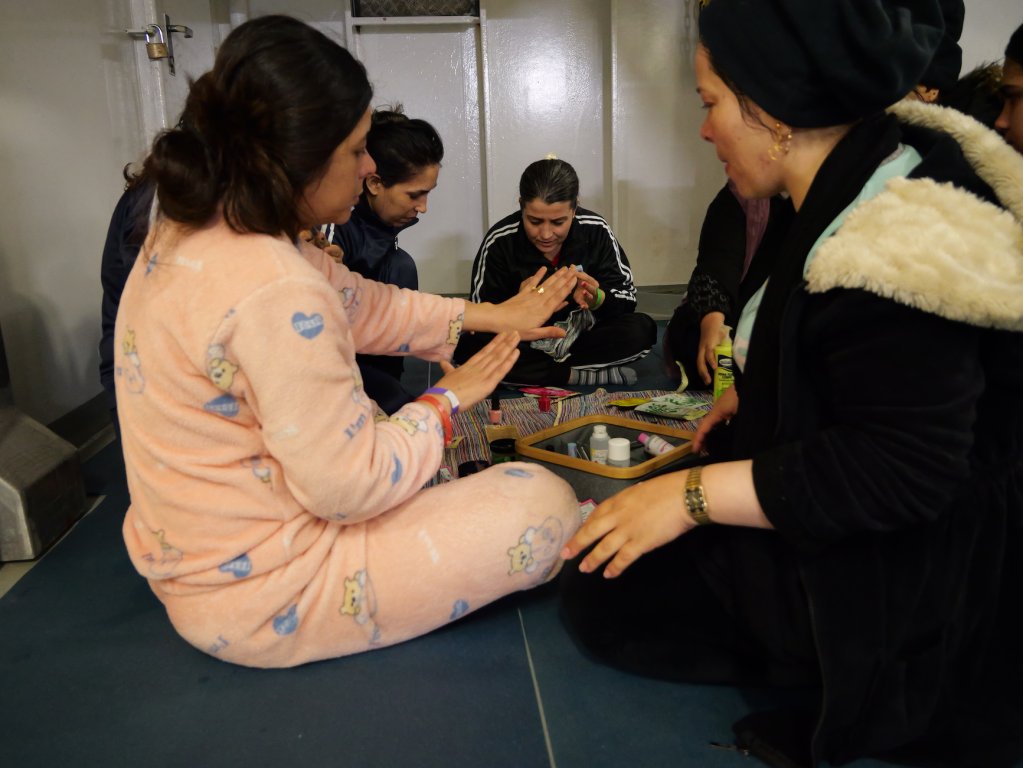
Journey through Libya
I traveled to Libya with friends. We were told that we would wait a month or two and then travel to Germany.
We were in eastern Libya, in the city of Tobruk. We stayed there for a month in an apartment made up of three rooms, a kitchen and a bathroom. We were about 50 people inside the apartment. There was almost no food or drinks.
We stayed there for about five months, then the smugglers threatened us and told us to go to western Libya, to Tripoli.
Read Also
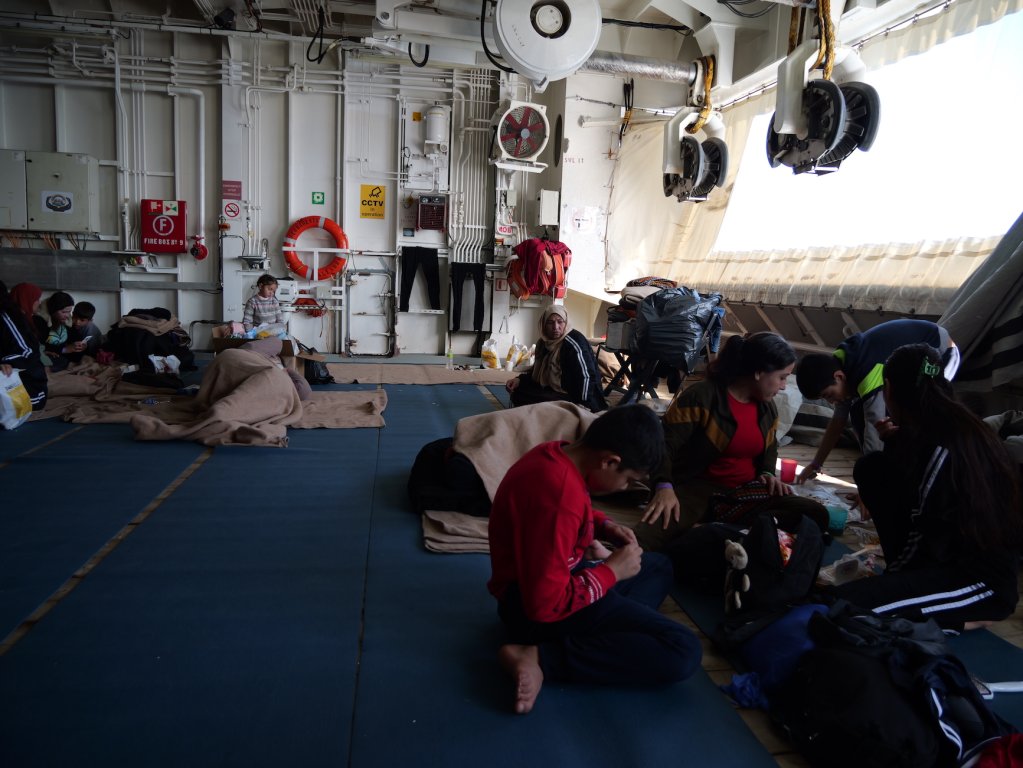
On the road to Tripoli, there were more than 60 checkpoints where we were stopped, searched, and interrogated about where we were going and where we came from. When they found out that we were Kurds, they scrutinized us even more and detained us for a longer time.
After we arrived in Tripoli, the smuggler took us to a very crowded house. You had to wait a long time for your turn to go to the toilet. Sleeping was also very difficult, and food and water were almost non-existent…We stayed there for several days…
For about six months, we did not have any nutritious food.
Three failed sea crossings
They then took us and we boarded a ship, but they said water was leaking into the ship, so we got off and they took us back to the house.
After three days, they took us to the ship again. But instead of sailing to Lampedusa, they took us to the city of Zawiya where I think they sold us to other smugglers. There, we were about 25 women in total. They stopped the men, stripped off their clothes, searched them, and took their belongings, phones, and money. But they did not do that to the women and released the women after about two hours. They also released the men who had women with them.
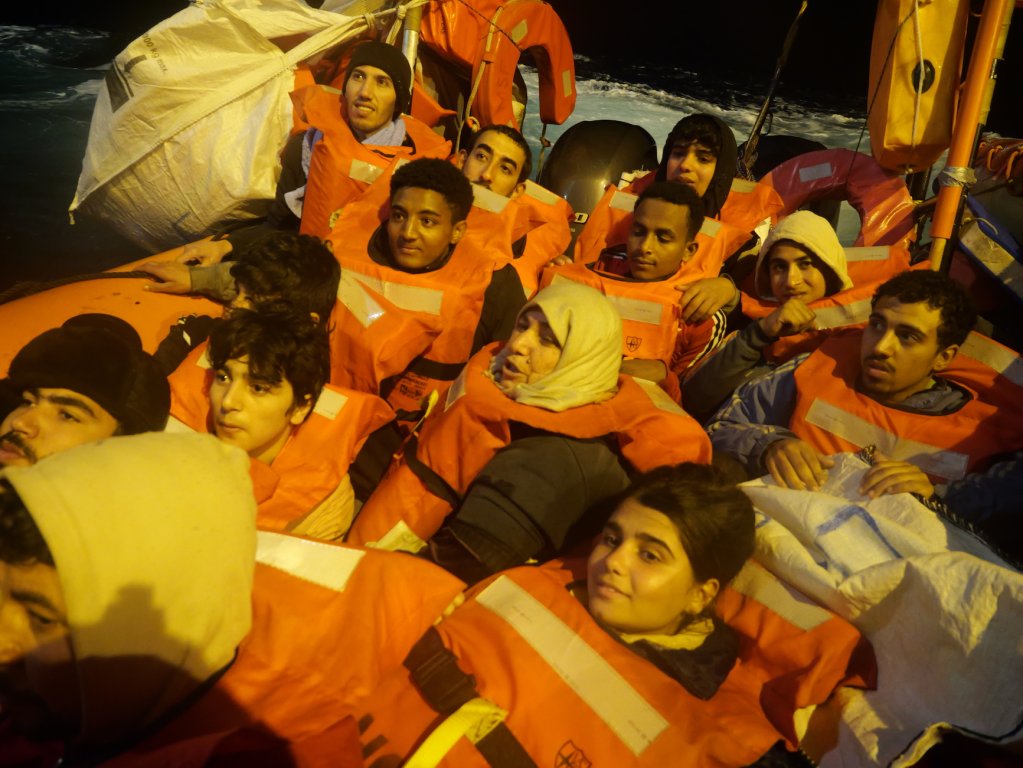
As for the men who did not have women with them, they were not released… They did this in order to demand money for each man's release, about 1,500 US dollars. There were four of our young relatives, all of them under the age of 18. They imprisoned them and released them after 10 days in exchange for 1,500 dollars for each person.
The third time we tried again to sail, and we spent 12 hours at sea. The Tripoli coast guard arrested us and took us to a place where we were all together, then they took us to another place of detention for women... In a room where there were surveillance cameras, they stripped us off all our clothes and we were completely naked, then they took all our things and money. They said they would keep our money until we are released. They never gave anything back.
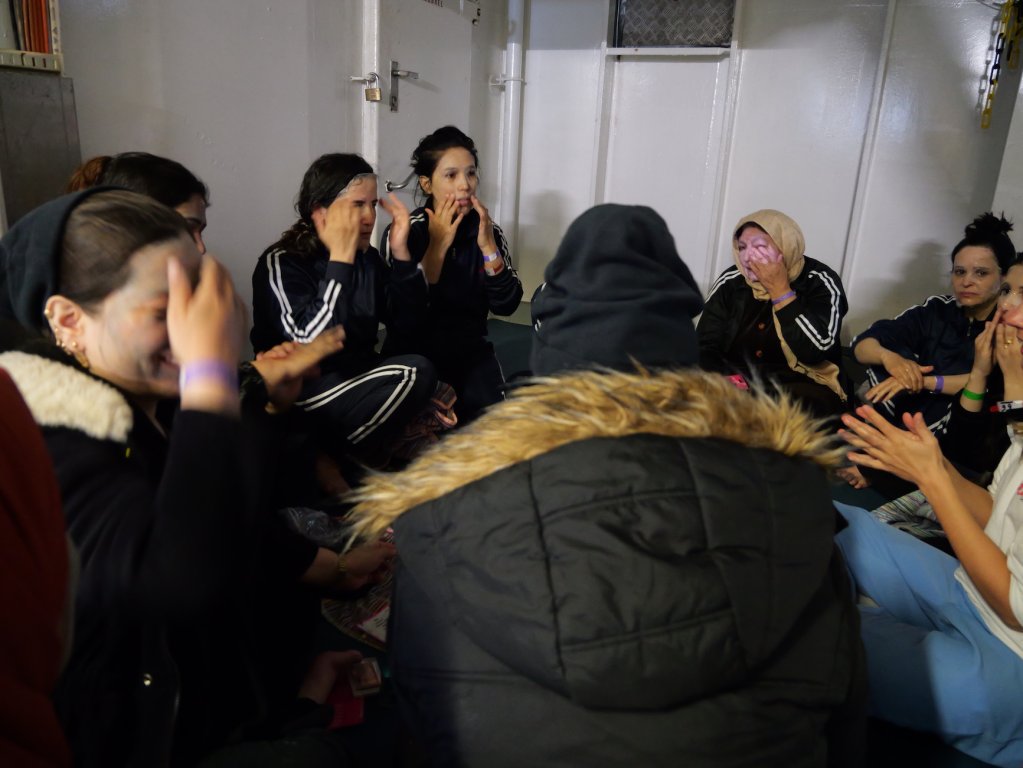
Life in Libyan detention
In detention, they gave us only one piece of bread and a piece of cheese daily. There was very little water – we were 75 people detained in the same place.
Some days there was no water – they told us to drink toilet water… They would take money from us in exchange for bringing us some water to drink. They would take 10 dinars from us, for example. They would buy water for two dinars and keep the rest of the money for themselves.
In detention, they gave each person two blankets. The place was not clean, there were people infected with diseases such as scabies, lice, etc. One enters healthy and leaves with many diseases.
After about 12-13 days, they released us, so we tried again. But after half an hour of sailing, they arrested us and wanted to take us back to Abu Salim, where we were detained before. We begged them not to send us there, but to no avail. Again they searched us, stripped us off our clothes.
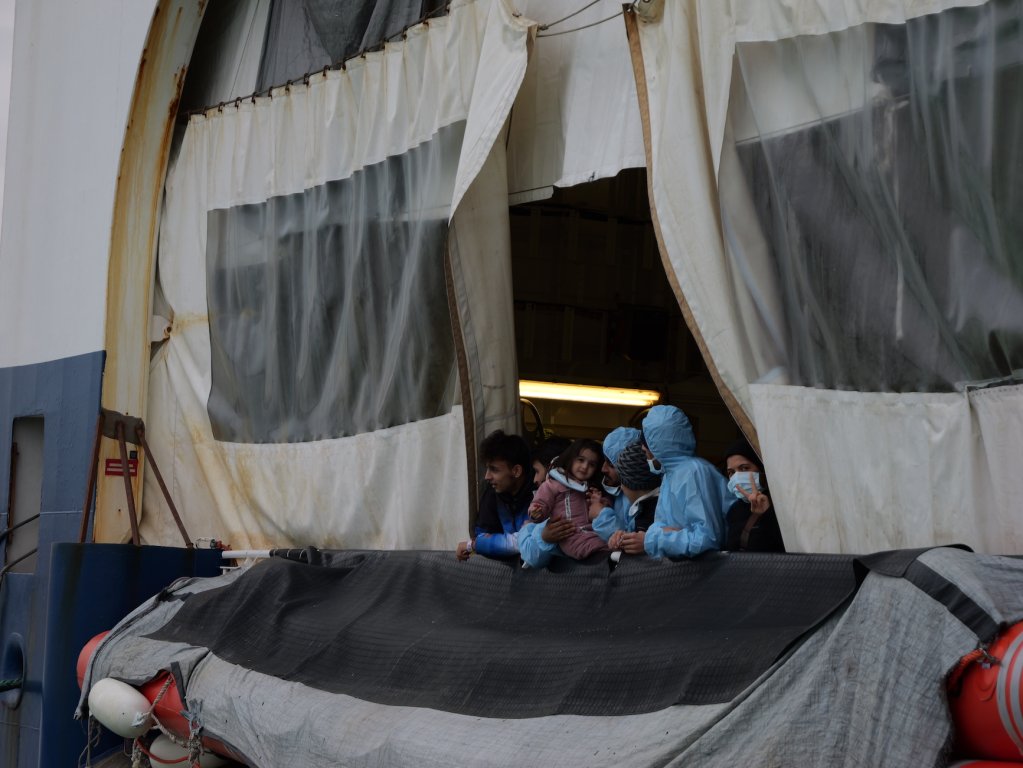
They took us to a large room where women from Somalia, Nigeria, Sudan and other African countries were detained – there were only a few women from Syria.
After three days, they took us for an interview. We begged the center director and told her: "Please just move us to another room, we cannot stay there." They moved us from that room to another room on the top floor. But they did not provide us with food, so you had to pay them money to provide you with a little food… The treatment was very bad, inhumane…a difficult situation that cannot be described… They don't look at you as a human being. They didn't beat or torture us, but there was a lot of humiliation and insults. They are an Islamic country, but they are very far from Islam.
We stayed there for 13 days, then they released us. I had no choice but to try to go to Europe again through smugglers.
Read Also
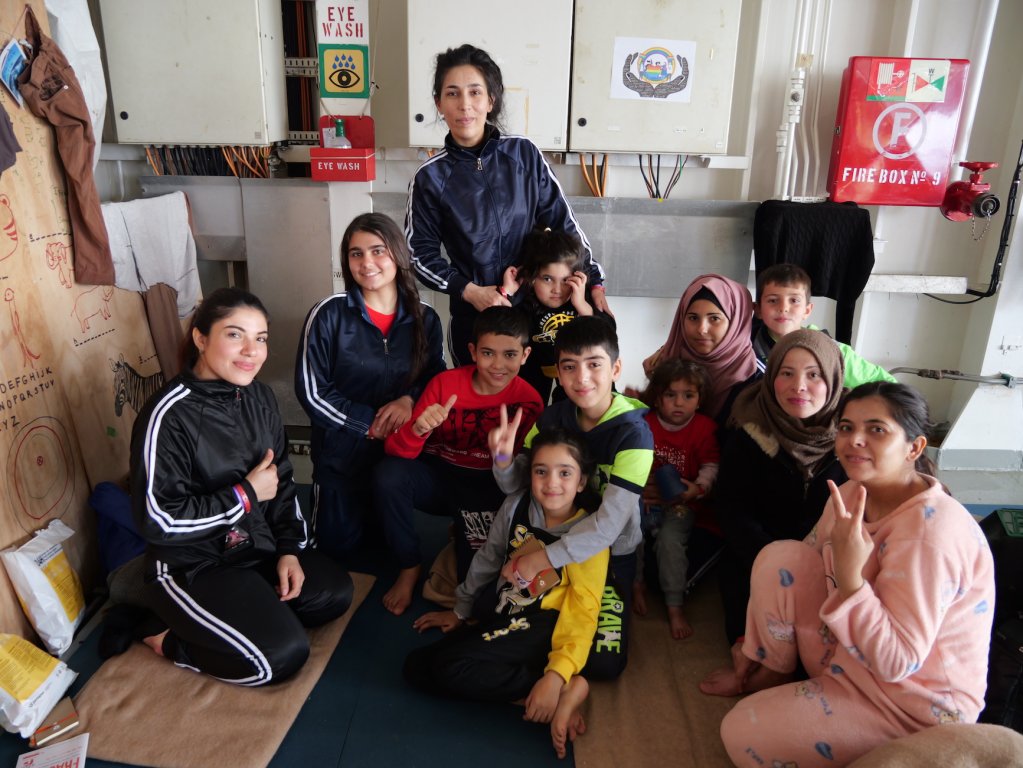
'Will I cross and survive, or will I die?'
I cannot return to Syria as [Turkish President] Erdogan is bombing Kobani, bombing gas and fuel stations. Now my parents are there, where life is very difficult and extremely expensive. For example, previously the price of a gas cylinder was 3,000, and now it is 150,000 thousand Syrian pounds. Now my mother cooks on firewood. In Syria, heating is done using fuel. But there is no fuel, no electricity – only about three to four hours a day.
There is also no commerce… Hospitals have also been bombed, people cannot be treated, people are dying. It is not possible to return and live in Syria, there is no way but to try again. Even if I try 10 times, I will not give up. I will try again until I can cross and go to Germany. Every time we try, we had death in mind. (Here Amina started crying and had to take a break).
For the last time, the smugglers announced there would be a trip. We were placed in a house with about 20 men and 10 women, men and women separated in different rooms. We stayed for two days and went to the shore again but didn't embark. They said the water was too high, and they returned us to the house.
After three days, I received a phone call. It was a Sunday and the smugglers said 'there is a trip today.' We got on the boat, the water was high. I regretted coming and said I wish I had not come. You always think and say to yourself: Will I cross and survive, or will I die? But you want to achieve your goal.
When we sailed, the waves were high, and the ship swayed too much within half an hour of sailing. I was afraid and did not look up. I felt dizzy and wanted to vomit, but I couldn't. Everyone was afraid and begged God for the waves to calm down and to arrive safely. Then one of the ship's engines broke down. The other engine wasn't working well and was constantly shutting down.
We didn't believe we would survive, we were so afraid. At night we were very afraid and said: Now the ship will sink. Many did not have life jackets. The situation was very dangerous and the ship could sink at any moment. But thank God we survived, it was as if we were born again.
*This series is based on an investigation conducted between February and May 2024 across Germany, Italy, and the Central Mediterranean. The investigation included a period on board the Médecins Sans Frontières (MSF) search and rescue ship, the Geo Barents, from January 30 to February 10. InfoMigrants was unable to independently verify the personal testimonies provided by migrant individuals. Kurdish-English translator: Aref Gabeau
